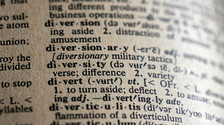Mel
When do you pronounce "n" as "n" vs "ng"?
I often here Japanese pronounce "n" as "ng" and I'm not really sure when you do that. Or are both acceptable?
Feb 28, 2011 3:45 AM
Answers · 4
1
Actually, 'n' or 'ng' or even 'm' doesn't matter for native Japanese speakers. They are all written as ん'n', and we don't care about the pronunciation difference.
However, if you do care, there is some tendency:
ん followed by 'g' or 'k' is often pronounced as 'ng.' Like まんが、さんがい。
ん followed by 'm' 'p' or 'b' is often pronounced as 'm.' Like さんぽ、さんまい、さんばい。
ん followed by 'n' 't' 'd' 's' or 'z' is often pronounced as 'n.' Like おんな、さんさい、さんにん、サンダル。
Note that this is not a "rule." You can pronounce ん just as you find easy. Rather than that, be careful not to link to the following vowel when ん is followed by a vowel.
れんあい is 'RE-N(g)-A-I,' not 'Re-N-Na-I.'
February 28, 2011
There is no "ng" in Japanese. All is written "n". It is pronounced similar to an English "ng" but not the same. Listen to your recordings.
1. n is pronounced ng
2. n before a consonant is pronounced n
February 28, 2011
Still haven’t found your answers?
Write down your questions and let the native speakers help you!
Mel
Language Skills
English, Filipino (Tagalog), Japanese, Spanish
Learning Language
Japanese
Articles You May Also Like

Top 6 Mistakes to Avoid with Vocabulary Acquisition
38 likes · 10 Comments

Navigating Your First Job: Do's and Don'ts in the Workplace
47 likes · 21 Comments

What Content to Watch to Acquire Advanced-level Proficiency
79 likes · 50 Comments
More articles
